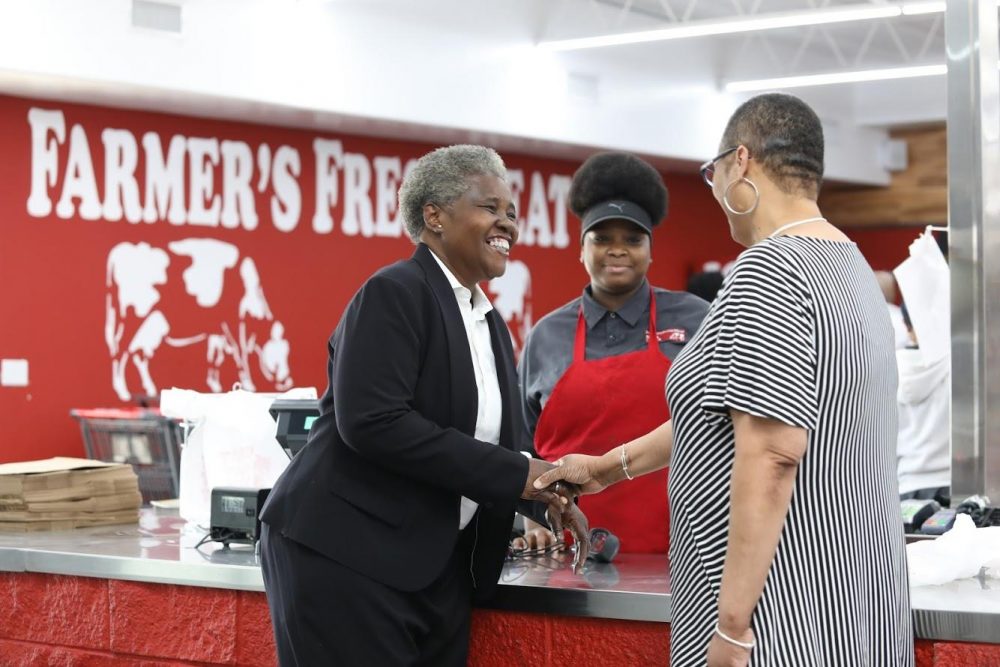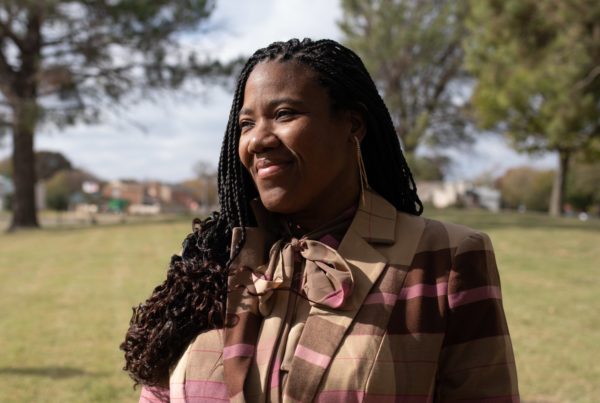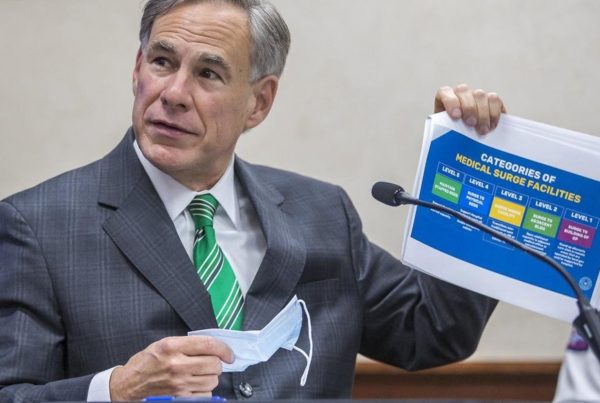Some 200,000 Houstonians in District B have been waiting more than a year to elect a new representative on City Council, as the race has been delayed because of an unambiguous legal question: Can a candidate with a felony conviction run for office in Texas?
The top two vote-getters in the November 2019 general election, Tarsha Jackson and Cynthia Bailey, are both in the runoff, after a nine-month legal battle about Bailey’s eligibility. After Bailey and Jackson made the runoff in a crowded field, the third-place candidate sued both Houston and Harris County, arguing that Bailey’s felony conviction disqualified her under state law.
Bailey ultimately prevailed. And now, with early voting finally underway, the Houston election has put second chances on the ballot for the whole state.
Election Day in the District B runoff race is set for Dec. 12, and many residents in the district are furious they’ve been forced to wait more than a year to elect a representative, according to Angeannette Thibodeaux, Acres Homes Super Neighborhood president.
“It has gotten to the point where we’re beyond frustrated,” Thibodeaux said. “Our residents of District B are mad as hell, and they’re mad because once again you place us on a back burner. We are a proud people but we are very intelligent and we know what we want. The people spoke.”
With neighborhoods like Acres Homes and Kashmere Gardens, the district is more than 90% Black and Hispanic. It also has the lowest median income out of all the council districts. Two weeks ago, Bailey and Jackson had the chance to reintroduce themselves to those voters in a recent candidate forum hosted by the Houston nonprofit organization TMO.
Bailey runs a nonprofit for local kids, and she’s spent years cleaning up illegal dumping in the district. More than a decade ago, Bailey was convicted of theft. Jackson, meanwhile, is a long-time advocate for criminal justice reform who started organizing after her son was arrested and jailed on a class C misdemeanor in his special needs class. Jackson has also been vocal in her support for Bailey’s candidacy, both in public statements and in court filings.
Council Member Jerry Davis, who’s term limited, has stayed on during the election legal battle, while over the past year, state judges have decided three times to allow Bailey on the ballot.
Despite the nine-month legal battle, the question of whether people with felony convictions can run in Texas is still unsettled. Thibodeaux, the Acres Homes Super Neighborhood president, said she isn’t surprised that more than 2,000 people voted for Bailey in the general election, and that she’s upset her community was disenfranchised for a whole year because of one confusing line in state law.
“I do believe in second chances,” Thibodeaux said. “If the language was ambiguous and it wasn’t clear up front, then why are we holding everybody hostage and accountable now?”
That one line in the state election code reads: “A finally convicted felon is not eligible to be a candidate for public elected office in this state unless they have been pardoned or otherwise released from the resulting disabilities.”
But during the 2019 Texas legislative session, Republican state Sen. Pat Fallon pointed out that virtually no one knows for sure what the end of that sentence means.
“The ‘resulting disabilities’ line is unclear and without legal precedent, causing confusion as to who is exactly eligible to run for public office,” Fallon said while introducing his legislation.
Fallon introduced a bill — which ultimately failed — that could have settled the question about whether people with felony convictions are eligible.
“They have broken their pact with society in a very egregious manner and should not have certain rights restored,” Fallon said. “SB 466 strikes this ambiguous part of the election code to make it clear that only convicted felons who have been pardoned are eligible to run for office.”
Bailey wasn’t the only person with a felony conviction trying to get on the ballot in Houston this past year. Rapper Willie D. filed paperwork to challenge Harris County Commissioner Rodney Ellis in the 2020 Democratic primary. But the county Democratic Party rejected his application because of his felony conviction. The party’s legal counsel said last week they would make the same decision again today.
But that decision was wrong, according to State Rep. Jarvis Johnson, a Democrat who represents the District B area at the state capitol. Johnson is now filing his own bill in the upcoming legislative session that would clarify the eligibility of people who have served their sentences and had their voting rights restored.
“I think everyone has a constitutional right here in America to be able to do that,” Johnson said. “If you can vote, then you should be able to run.”
ewis Conway Jr. has thought about that one line of the election code as much as anyone.
Now a national strategist with the ACLU, Conway ran for Austin City Council in 2018 despite having a felony conviction. When he tested the law, the Austin city clerk deemed him eligible.
To Conway, it’s clear the state law was intentionally written to be confusing enough to stop him. And it’s worked as intended, he said, scaring both the Harris County Democratic Party and Willie D. this past year.
“I found it unsettling for Willie D. to have acquiesced to their opinion,” Conway said. “But the Texas Democratic Party, in my opinion, is part of the problem.”
Conway chose to push forward with his 2018 campaign, ultimately losing in the general election. But, he said, he was the first to really challenge lawmakers to define the language. And now, he added, Bailey has taken the next step by successfully defending her place on the ballot.
Conway pointed to the courts’ lack of urgency and the year-long delay itself as an example of racism impacting an election where Black candidates are running to represent a majority Black or Hispanic population.
“Racism is the impetus for the speediness in which the process moves along,” Conway said. “Any effort that is going to curtail the majority’s ability to participate in democracy is going to be stymied by folks who are holding onto the vestiges of slavery, power that is a derivative of slavery.”
The Houston election is part of a national shift, according to Nicole Porter, the advocacy director at criminal justice reform group the Sentencing Project. Just last month, Tarra Simmons, who was formerly incarcerated for drug and theft convictions, was elected to the state legislature in Washington.
“That’s part of the calculus with this District B election in Houston. You’re seeing Tarsha, a criminal justice advocate who is also directly impacted herself. She has a long history in this because her child was in the juvenile justice system. And Cynthia herself has a criminal record,” Porter said. “We’re in an era now where even district attorneys want to be identified as progressive and run on platforms to scale back mass incarceration.”
And Porter agreed that Bailey’s campaign builds on what Conway started — and could lead to more second chances in the future.
“Even if Cynthia doesn’t get elected to the Houston City Council,” Porter said, “her running helps to set the stage for potential future residents to also run and not opt out of choosing to govern in Houston or Harris County because of their criminal record.”















